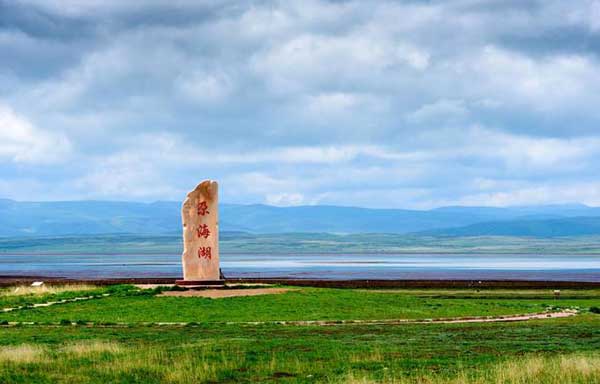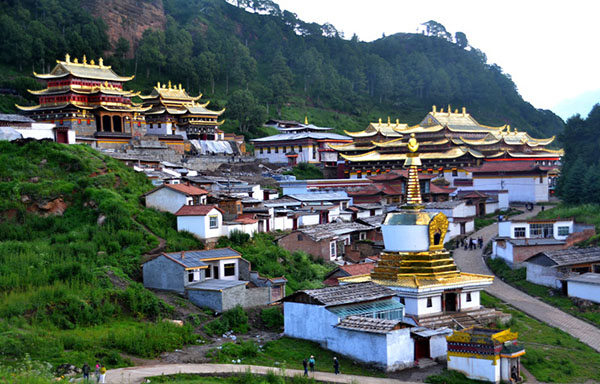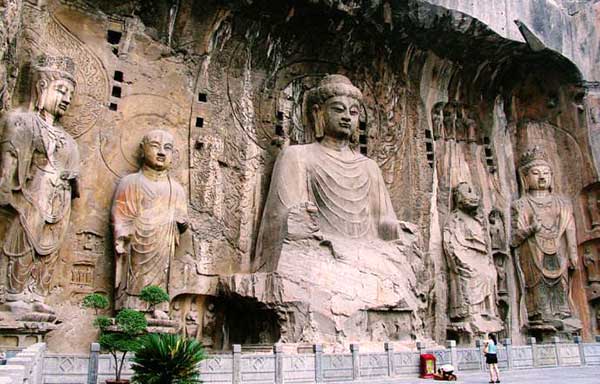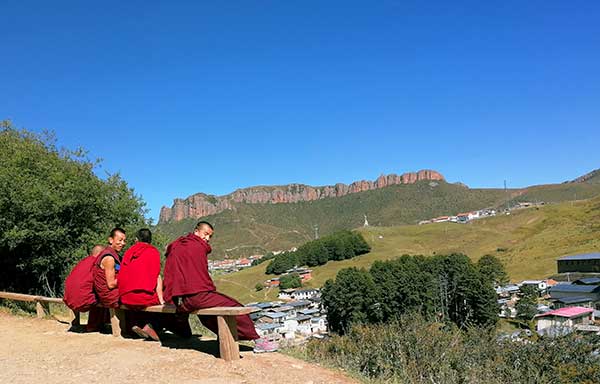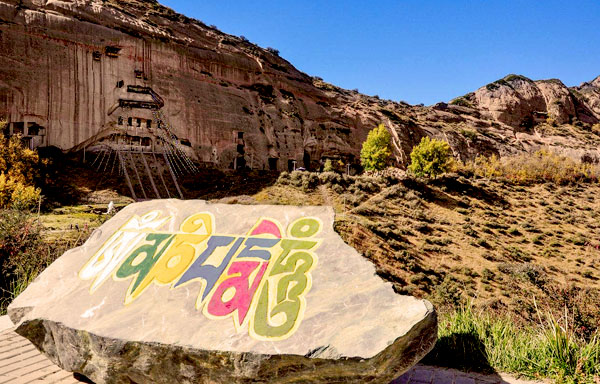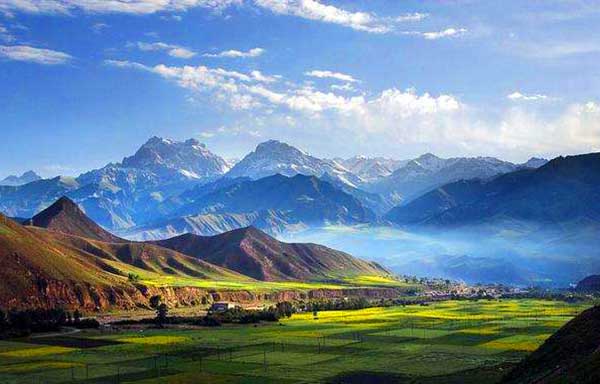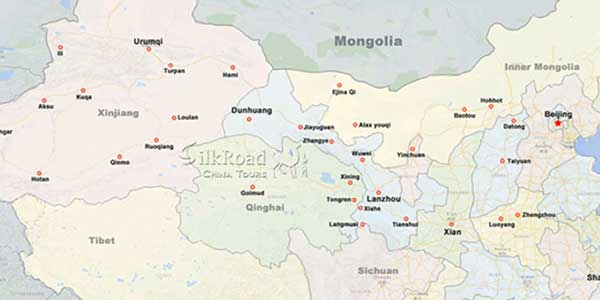 Langmusi is Chinese name for the little village, in Tibetan its Taktsang Lhamo , which is a popular female guardian of Tibetan Buddhism. Legend has it that in ancient times there were a lot of tigers along the Bailongjiang – the white dragon river. They hurt and killed many local people. Taktsang Lhamo couldn’t bear to see the suffering of the people. She vanquished the tigers and was incarnated as stalactite statue to protect the locals. As memory and gratitude, local people named the village Taktsang Lhamo.
Langmusi is Chinese name for the little village, in Tibetan its Taktsang Lhamo , which is a popular female guardian of Tibetan Buddhism. Legend has it that in ancient times there were a lot of tigers along the Bailongjiang – the white dragon river. They hurt and killed many local people. Taktsang Lhamo couldn’t bear to see the suffering of the people. She vanquished the tigers and was incarnated as stalactite statue to protect the locals. As memory and gratitude, local people named the village Taktsang Lhamo.
An ideal destination for backpackers as it has not been listed on the itinerary of any Chinese travel agency: a quiet, picturesque Tibetan village at an elevation of 3300 m, beautiful landscape, well preserved Tibetan cultures, unknown to most tourists. Daily life is regulated by Tibetan religious rituals. Curious travelers are even allowed to witness a sky-burial ceremony.
Its a sleepy village in a remote breathtaking location inhabited by a colorful mix of Han Chinese, Hui and Amdo Tibetans. It is said that the provincial borderline runs through the middle of town with Sertri Gompa (monastery) in Gansu and Kirti Gompa (monastery) located in Sichuan. The power struggles between the two Gompa may have been the reason for the border location. Both temples have distinct styles making both well worth the visit alone. The surrounding mountains give off a very much alpine flair remenisant of rural Austria or Bavaria and perfect for hiking and horsetreking.
The Huizu Minority
Langmusi’s population is a mix of Tibetans and Huizu (a muslim ethnic minority). While the Tibetans heavily outnumber the Huizu, the two groups, who have strong prejudices against each other, live in a symbiotic state. There aren’t many towns in China where you can see a mosque literally 10 meters from a Buddhist temple.
Although they segregate themselves to different areas of the small town (most of the Huizu are huddled near their monastery), each minority has shops and restaurants next to each other and they seem to begrudgingly get along. You’ll see monks buying nan bread on the street from Huizu sellers, and you’ll see Huizu eating in Tibetan run restaurants. But, if you stop a Tibetan and ask him or her for an opinion of the Huizu (or vice versa), don’t be surprised if you get a rather bigoted answer. Nonetheless, actual conflicts between the two groups are rare. And all the locals will attest to Langmusi being a very safe place (at least from violence and crime). Below are pictures from the Huizu area of town. The second picture is of Huizu kids going home from school. The last picture shows drying yak patties, which are used as fuel for heating and cooking.
Weather

Attractions in Langmusi
Related Tours
General Information
Alias: No
Area: No sq km
Location: Gansu
Airport: No
Train Station: No
Population: 3000
Relevant blogs
-
How did the name of Tianshui in Gansu come about?
The name Tianshui is very pleasant to the ear, and it reminds one of that exquisitely beautiful verse, "After getting drunk, one doesn't know if the sky is in
-
The 8th Silk Road Hotel Festival was successfully
On December 27th, the "8th Silk Road Hotel Festival" grandly opened at the Yujing International Hotel in Zhangye. This hotel festival gathered industry experts,
-
The Karez Irrigation System in Turpan has been sel
On September 3rd, at the 75th Executive Council Meeting of the International Commission on Irrigation and Drainage held in Sydney, Australia, the 2024 (11th bat
-
What is the connection between "dragons" and "s
In traditional Chinese culture, the snake has a dual identity of auspiciousness and danger. Ancient people believed that the snake not only possesses divine cha
-
Endangered Przewalski's Horses Spotted at Dunhuan
<p>In early February, a group of special "visitors"—the Przewalski's horses—appeared at the Dunhuang Yumen Pass scenic area in Gansu Province, a U
-
The Fourth Dunhuang Cultural Tourism Supplier Conf
On the morning of February 18th, the Fourth Dunhuang Cultural Tourism Supplier Conference in Northwest China commenced at the Dunhuang International Convention

